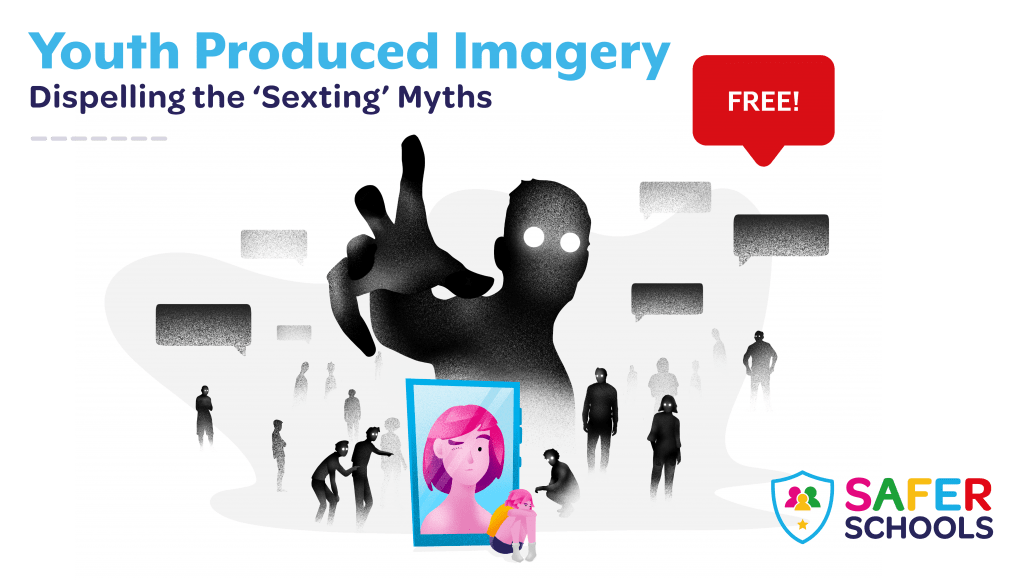How to Respond to Sexting in Schools – Dawn Hewitson

With over 30 years’ experience in education, Dawn Hewitson is a Senior Lecturer and Designated Safeguarding Lead for Computer Science and Secondary Education at Edge Hill University. She sat down with us to discuss sexting policy in education and her Ph.D. candidacy that addresses the problem in schools.
Dawn, ‘Sexting’ is a relatively new phenomenon how would you define it?
For me, it’s electronic communications between people that are of a sexual nature. That could include explicit sexual content and the ‘come to bed’ type eye shots that girls tend to take, or gestures people make by putting things into their mouth ‘simulating’ [oral sex]- for me that’s sexting as well. I don’t think it’s explicitly sexual, it could be an image or a text that’s suggestive of a sexual act.
It can be anything, but the definitions are so loose and mean different things to different people. Adults know it as sending suggestive images to one another, and children understand it as a bit of both.
‘Sexting’ is one of the most talked about challenges in schools at the moment, how difficult do you think it is for a child to talk to someone about it?
I think there are far too many scare tactics at the moment, there are far too many children who think if they engage in this activity it’s the end of the world and they are doomed.
I think teachers need to be supportive and understand or empathise with how the child must be feeling.
If a child talks to you about something that’s troubling them, they’re actually empowering you with massive trust. The way in which you respond to that can have really serious and ongoing consequences in that child’s life, and the way they communicate with people.
What advice would you give to teachers on how to talk to children and young people about the topic?
So, the first thing to do is not to be alarmed by whatever it is they are telling you.
The second thing is to have a bit of compassion and think about how sad or unhappy this young person must be and then to calmly suggest courses of action you can take.
I think you should ask them questions; ascertain how they ended up in this circumstance, how they got to taking pictures of themselves and how these pictures ended up in someone else’s hands.
But I think it’s equally important to let them know that it’s not the end of the road; perhaps there ought to be changes in the way teachers respond to this.
You have to ascertain why they have been involved and which course of action you will take. But in all instances, you need to make sure that there is somebody else that they can talk to who is maybe outside of the teaching framework and that relationship.
They should be able to talk about how they’re feeling and given some coping strategies.
Why should safeguarding professionals approach the issue with sensitivity?
I don’t think there’s enough of an emphasis on what you’re actually dealing with here. Often it can be someone’s first encounter with sexual activity.
It can have long lasting effects on how they view their own bodies, their relationship with themselves, which I think is the most important relationship. It’s about how you relate to the rest of the world. It will always impact on future relationships if it’s handled incorrectly, and I think teachers need to recognise that’s what they’re dealing with.
There is also very limited awareness of outcome 21 from what I’ve seen, I’ve not yet encountered one single school that is aware of outcome 21. Consent is an area of the curriculum that is just not done justice, there seems to be a lack of awareness of ownership of images. There’s a lot of work to do and we haven’t even started yet.
If you would like to learn more about how to tackle this issue in schools, come along to our Youth Produced Imagery Seminar Series.
Dawn’s Top Tips for speaking to a young person on the topic:
• Do not be alarmed
• Respond calmly and with compassion
• Ask open questions
• Reassure them that action can be taken
• Start to plan some coping strategies
The next events in our Youth Produced Imagery seminar series, take place in Wakefield, Preston, and Birmingham in November. The seminar will include a workshop to explore how educational professionals can manage and respond to the challenges presented by image-based abuse.


